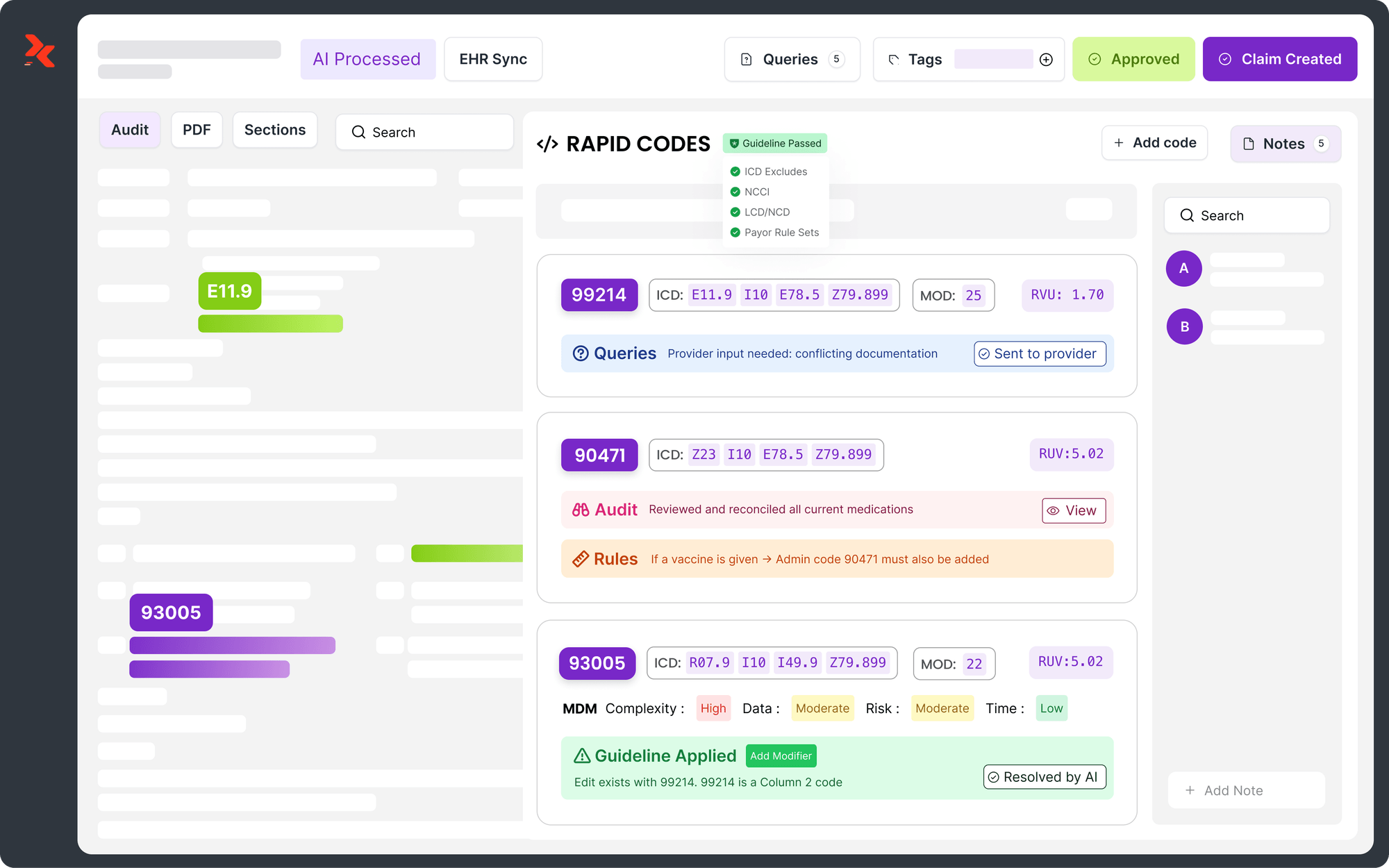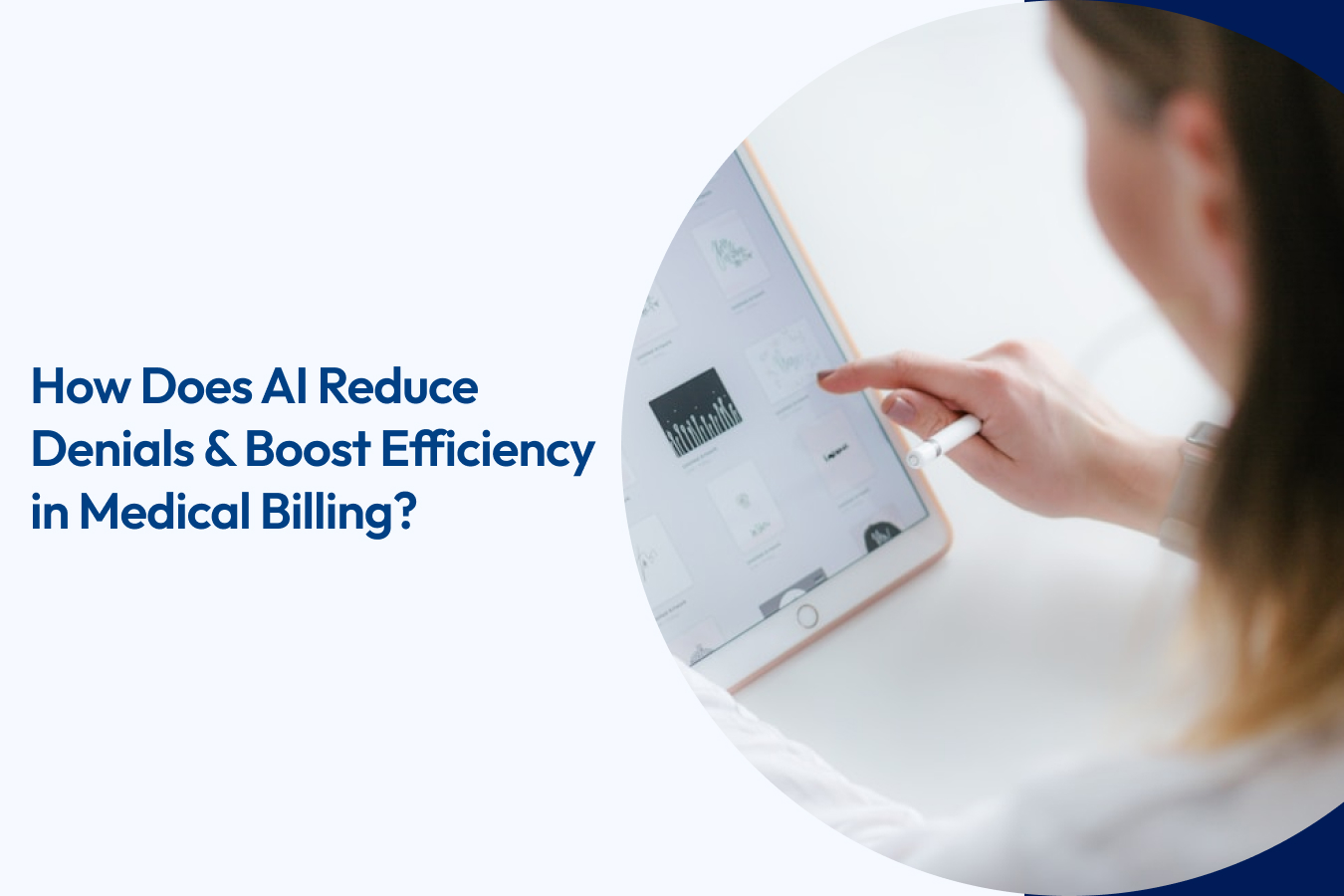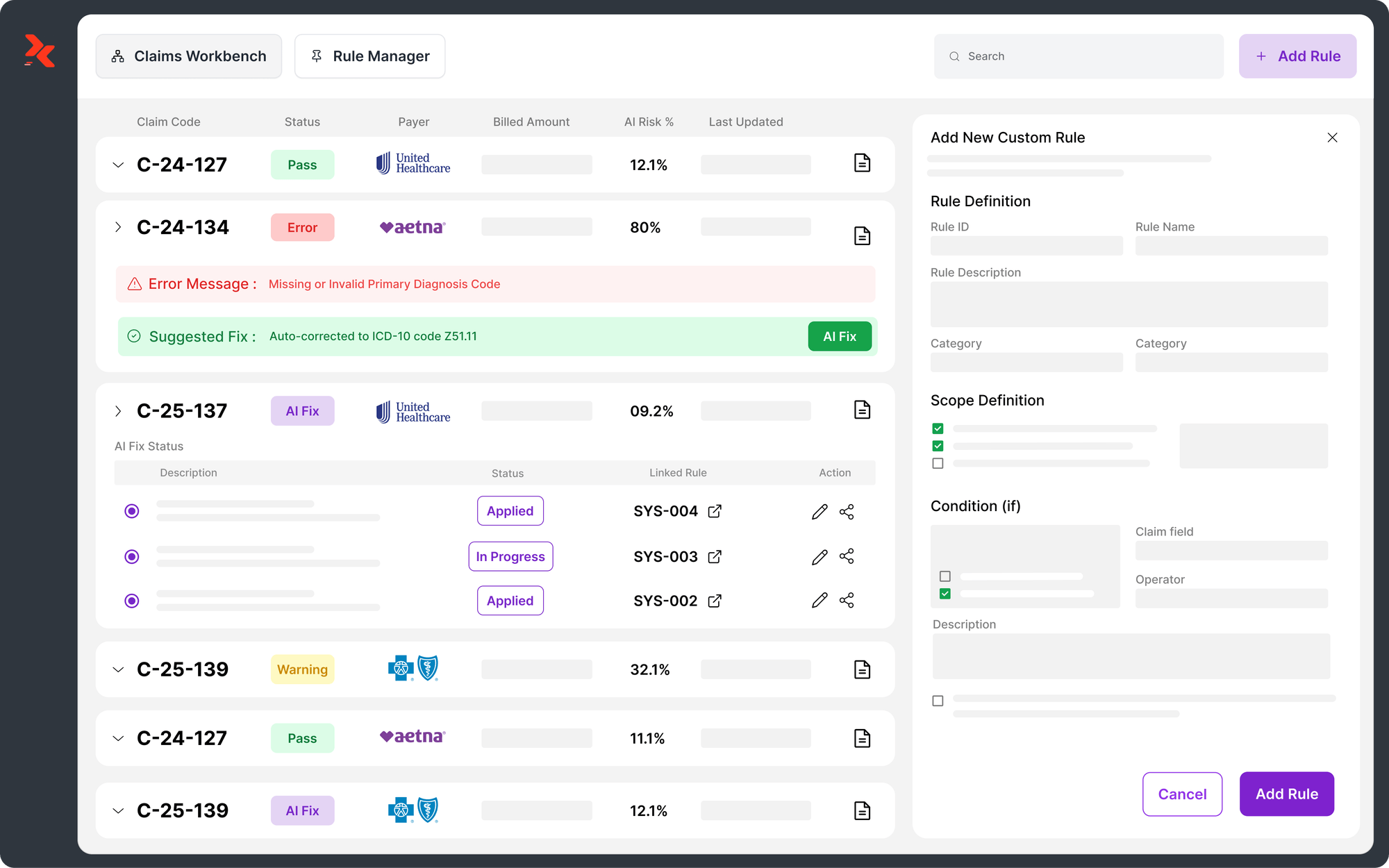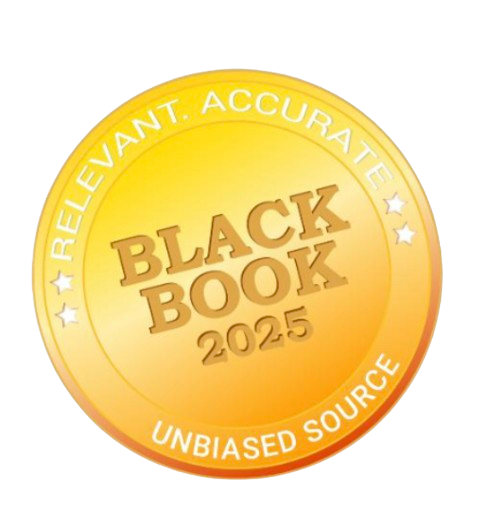.webp)
Top Vendors for Revenue Cycle Management in Healthcare

In the healthcare industry, managing the revenue cycle efficiently is more critical than ever. With increasing pressure on healthcare organizations to streamline operations, reduce costs, and maintain financial stability, an optimized revenue cycle can be the difference between profitability and struggle. However, denial management is one of the biggest revenue cycle challenges.
Denied claims can cause significant delays in reimbursements and create a ripple effect that disrupts financial operations. The complexity of managing multiple payer requirements, coding errors, and other administrative hurdles often leaves healthcare providers facing an uphill battle.
This is where specialized denial management services come into play, ensuring that claims are processed quickly, accurately, and with minimal denials.
Vendors offering denial management services have become integral in helping healthcare organizations overcome these challenges.
Their expertise in navigating payer requirements, reducing administrative burden, and leveraging advanced technology to manage claims ensures that healthcare providers can focus on delivering quality care while optimizing revenue.
What is Revenue Cycle Management (RCM) and Denial Management?
Revenue Cycle Management (RCM) is a comprehensive process that ensures healthcare providers get paid for their services. Denial management is key in addressing and reducing the number of denied claims, ensuring smoother financial operations.
Revenue Cycle Management (RCM) refers to the end-to-end process that healthcare organizations use to manage patient billing and payments. It covers everything from patient registration and appointment scheduling to coding, billing, and collections.
Denial Management is explicitly focused on addressing denied claims. These denials can delay payment, create administrative backlogs, and lead to financial losses. Effective denial management ensures that claims are reviewed, corrected, and resubmitted quickly to maximize revenue.
Here's why RCM and denial management are essential:
- RCM: Ensures that healthcare providers are reimbursed for the care they provide.
- Denial management: Helps reduce the number of denied claims and addresses issues quickly.
- Efficiency: Reduces administrative delays, leading to quicker payments.
- Profitability: Effective management boosts cash flow and financial health.
RapidClaims streamlines denial management with AI-driven automation, automating coding and performing real-time compliance checks. This reduces errors and speeds up the resolution of claims.
Why Choosing the Right RCM Vendor is Crucial for Healthcare Organizations
Choosing the right RCM vendor is essential for healthcare organizations looking to improve their revenue cycle efficiency and ensure a steady cash flow. The right vendor can optimize the entire process, from billing and coding to addressing denied claims.
Key factors to consider when selecting an RCM vendor:
- Expertise in Denial Management: The right vendor should specialize in handling denials and ensuring quick resolutions.
- Technology Integration: Look for vendors offering seamless integration with existing Electronic Health Records (EHR) and Practice Management Systems (PMS).
- Customization: A good RCM vendor should tailor their services to fit the specific needs of your practice or hospital.
- Customer Support: Ongoing support and expertise to address issues quickly and improve claim success rates.
- Proven Track Record: Choose vendors with a history of successful outcomes, particularly in improving first-pass claim acceptance rates.
With solutions like RapidClaims, healthcare providers can reduce administrative costs and expedite reimbursement by automating the coding process and conducting real-time compliance checks.
This AI-driven system minimizes errors, enhances coding accuracy, and ensures that claims are processed more efficiently, resulting in faster approvals and fewer denials.
- The platform's features ensure that every step of the revenue cycle is optimized, from coding to payment collection.
Top 10 Companies Offering Denial Management Services
When selecting the right denial management services provider, it’s crucial to partner with a vendor that has a proven track record in reducing claim denials and optimizing reimbursement. Here are the top 10 vendors in the healthcare industry:
1. RapidClaims
Key Features: AI-powered denial prevention and resolution tools, including RapidCode (automated coding) and RapidRisk (HCC coding optimization). Real-time compliance checks and documentation analysis improve claim accuracy and reduce denials at scale.
2. Optum360
Key Features: Comprehensive RCM services, including denial management and claims resolution, with robust analytics and claim tracking to optimize reimbursement.
3. Cerner Corporation
Key Features: End-to-end revenue cycle solutions focusing on automating denial management and reducing administrative overhead for healthcare providers.
4. TruBridge
Key Features: Proactive denial prevention and quick resolutions with seamless integration into hospital systems to streamline the process.
5. eCatalyst Healthcare Solutions
Key Features: Data-driven denial management solutions tailored to small and large healthcare organizations, with a focus on improving claim accuracy.
6. R1 RCM
Key Features: AI-driven end-to-end RCM services with a strong emphasis on optimizing denial management and improving reimbursement cycles.
7. The SSI Group
Key Features: Advanced denial management solutions with a focus on reducing claim denials and easy integration into existing healthcare systems.
8. Conifer Health Solutions
Key Features: Proactive denial management with deep industry expertise and scalable solutions aimed at optimizing claim accuracy and minimizing denials.
9. Navicure
Key Features: Cloud-based denial management platform designed to streamline claim tracking and resolution, improving data accessibility and speed.
10. Athenahealth
Key Features: Cloud-based RCM services offering denial management and coding accuracy, with strong customer support and optimization for improved claims resolution.
How Denial Management Services Enhance RCM Efficiency
Denial management plays a pivotal role in enhancing the overall efficiency of the Revenue Cycle Management (RCM) process by reducing administrative costs and accelerating reimbursements.
Effective denial management services can drastically improve the efficiency of healthcare organizations by addressing the root causes of claim denials and ensuring faster claim resolutions. Here's how denial management services contribute to RCM efficiency:
Faster Claim Resolutions: By identifying and correcting issues early, denial management services help resolve claims quickly, ensuring that healthcare providers are reimbursed promptly.
Improved First-Pass Claim Acceptance: Proactive denial management reduces errors during the initial claim submission, resulting in higher first-pass acceptance rates.
Cost Savings: Reducing the number of denied claims reduces administrative costs, such as reprocessing and follow-up efforts.
Enhanced Cash Flow: Faster claim resolutions and improved claim acceptance directly boost the organization's cash flow, ensuring financial stability.
Data Insights: Advanced denial management systems like RapidClaims offer valuable analytics that help healthcare organizations identify patterns in denials, allowing them to address underlying issues and prevent future denials.
Why You Should Consider Integrating Denial Management into Your RCM Strategy
Integrating denial management into your overall RCM strategy is crucial for improving financial outcomes, reducing claim errors, and ensuring smoother operations within your healthcare organization. Here's why it should be a core component of your revenue cycle strategy:

- Prevention Over Correction: By focusing on denial management early in the process, healthcare organizations can prevent claims from being denied in the first place rather than simply correcting them afterward.
- Streamlined Workflow: An integrated approach ensures that all parts of the revenue cycle — from patient intake to claim resolution — work seamlessly together, reducing delays and errors.
- Enhanced Data Accuracy: Integration helps maintain the accuracy of coding and billing, which is critical for minimizing denials and improving first-pass claim acceptance rates.
- Improved Reporting and Analytics: A unified RCM system with integrated denial management provides real-time insights and analytics, enabling better decision-making and quicker adjustments to improve claim resolution rates.
- Faster Reimbursement: Healthcare providers can expect quicker reimbursements with fewer denials, ensuring a healthier cash flow and more reliable revenue streams.
By incorporating denial management services like those provided by RapidClaims, healthcare organizations can optimize their revenue cycle and reduce costly delays caused by claim denials.
The Role of Technology in Optimizing Denial Management
Technology is crucial in optimizing denial management services, helping healthcare organizations reduce errors, speed up claims processing, and improve overall RCM efficiency.
With the rise of advanced technologies, denial management has become increasingly automated, allowing healthcare providers to resolve claims faster and more accurately. Here's how technology enhances denial management:
AI and Automation: AI-driven tools like RapidClaims help identify denial patterns, automatically flagging claims at risk of being denied and providing real-time suggestions for corrections.
Data Analytics: By analyzing historical claim data, advanced denial management systems can predict and prevent potential denials, reducing the need for manual intervention and improving first-pass acceptance rates.
Seamless Integration: Modern denial management solutions easily integrate with existing Electronic Health Records (EHR) and Practice Management Systems (PMS), streamlining workflows and reducing administrative burdens.
Faster Processing: Automated workflows powered by technology reduce the time spent on manual claim submissions, follow-ups, and reprocessing, speeding up the overall reimbursement cycle.
Improved Accuracy: Technology helps ensure that billing and coding are accurate, reducing human error and the likelihood of claim denials caused by incorrect data.
Conclusion
Selecting the right partner for denial management is crucial to the success of your RCM strategy. The right vendor can optimize your revenue cycle, reduce claim denials, and accelerate reimbursements.
In today's complex healthcare environment, the need for effective denial management has never been greater. With the increasing number of claim denials and the administrative burden they create, partnering with the right vendor can make all the difference in your revenue cycle efficiency.
When choosing an RCM vendor, look for:
- Proven experience in denial management to ensure timely and accurate claim resolution.
- AI-powered solutions that streamline processes and reduce manual errors.
- Customization to fit the unique needs of your healthcare organization.
- Excellent customer support to handle issues quickly and efficiently.
RapidClaims stands out as a top provider of denial management services, leveraging advanced AI and automation to reduce denials and optimize the entire RCM process.
By implementing a solution like RapidClaims, healthcare organizations can improve claim accuracy, reduce administrative costs, and ultimately enhance financial performance.
Simplify your revenue cycle management with RapidClaims. By automating denial management and integrating AI-driven solutions, RapidClaims helps you reduce claim denials, cut administrative costs, and accelerate reimbursements.
Request a Free Demo to see how RapidClaims can improve your RCM process and boost your financial performance.
FAQs
Q.1 What is Revenue Cycle Management (RCM)?
Revenue Cycle Management (RCM) is the process healthcare organizations use to manage patient billing and payments, covering everything from patient registration to coding, billing, and collections.
Q.2 Why is denial management important in RCM?
Denial management plays a key role in RCM by addressing and reducing denied claims, ensuring that claims are processed quickly and accurately, leading to faster reimbursements and better cash flow.
Q.3 How does denial management improve financial outcomes?
By resolving denied claims quickly and accurately, denial management minimizes the need for reprocessing, reduces administrative costs, and accelerates the reimbursement cycle, which improves overall financial health.
Q.4 What are the key benefits of integrating denial management into RCM?
Integrating denial management ensures a more efficient workflow, reduces delays in claim resolution, improves data accuracy, and ultimately results in faster reimbursements and reduced claim denials.
Q.5 How do technology and automation enhance denial management?
Technologies like AI-driven tools, such as RapidClaims, help identify denial patterns, automatically flag at-risk claims, and provide real-time suggestions for corrections, reducing errors and speeding up claims processing.
Q.6 What role does AI play in optimizing denial management?
AI helps identify and prevent denial issues by analyzing historical data, predicting potential claim denials, and automatically flagging claims that may require additional attention, improving first-pass claim acceptance rates.
Latest Post
What Does Current Procedural Terminology Mean and Why Is It Important in Medical Coding?
How Does AI Reduce Denials and Boost Efficiency in Medical Billing?
DRG Validation in 2026: Why is it Essential for Hospitals?
EMR Conversion Challenges & Best Practices in 2026
CO 11 Denial Code: What It Means and How to Fix It
Related Post
Top Products

%201.png)








